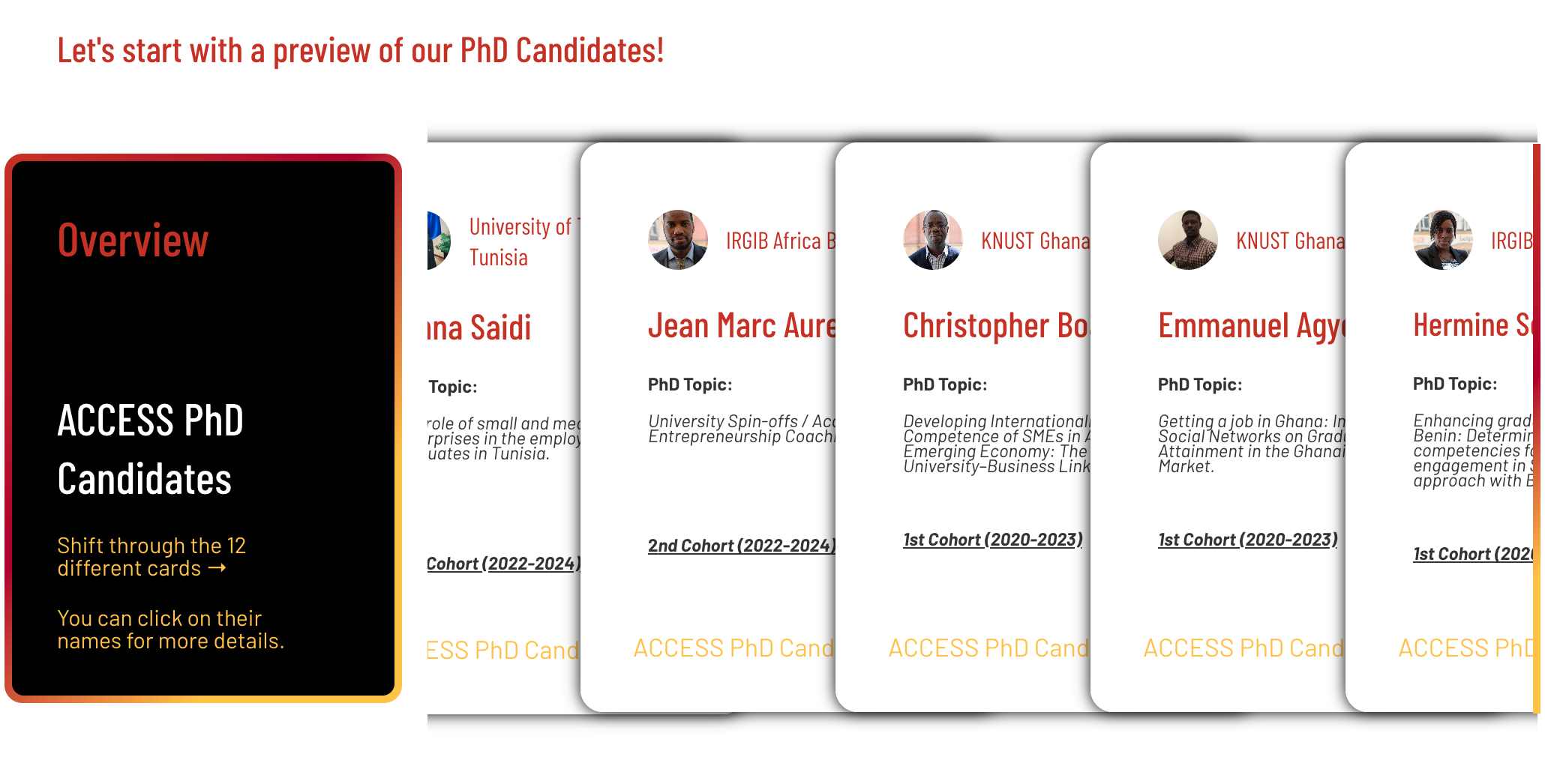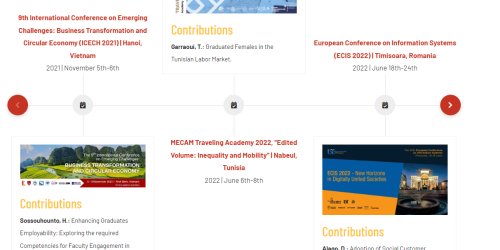Employability Research
RESEARCH PILLAR | Mission – Activities – Outputs
Introduction
The ACCESS Research Pillar aims to shed light on an issue of enormous importance not only for Africa but for the entire world, namely graduate unemployment. Over 60% of Africa’s population is under the age of 25, and at the same time, the African labor market finds itself unable to absorb this amount of potential workers: The question of necessary worker skills, labor market requirements, and the role of universities has never been more pressing. Measured by the sheer magnitude of this problem, the ACCESS Research Pillar is following a multidisciplinary approach to address these broad questions.
Partnering with seven universities from Africa and linking multiple sciences such as economics, IT, geography, anthropology, and history, the ACCESS project brings together a team of innovative scholars from around the world.
Twelve doctoral students from our African partner universities strengthen the research pillar in Leipzig and participate in offerings and courses at the university’s Research Academy.
The research pillars cover a wide range of content, starting from employability to societal expectations of universities and gender equality.
Complementing the PhD program, the ACCESS Research Pillar conducts its own research in the area of the African labor market. Within this, manuals on employment are produced and an online Employability Assessment Tool is developed. With a dedicated and passionate team and a commitment to excellence in research, the Research Pillar is an important component within the ACCESS project.
General Responsibilities & Tasks
Employability Research
Employability research aims to enhance the skills and knowledge of graduates to improve their employability prospects. By identifying the needs and expectations of the labor market, this research provides insights into the skills, knowledge, and attributes required for graduates to succeed in their chosen careers. Through this research, universities and policymakers can develop programs and policies that support graduates in acquiring these skills and attributes. Ultimately, the goal of employability research is to increase the number of graduates who are able to secure and maintain employment that aligns with their education and career aspirations.
ACCESS PhD Candidates
The ACCESS project provides a unique opportunity for over a dozen PhD candidates from our six core partners to pursue their doctoral research on employability topics. These candidates come to University of Leipzig, Germany to do jointly supervised PhDs, which allows them to benefit from the expertise of both their home and host institutions and multidisciplinary methods coming from the all involved scientific disciplines. Through this international collaboration, the PhD candidates are able to conduct research that has a direct impact on their respective countries’ labor markets and employability outcomes.
ACCESS Conferences
Networking is another responsibility we share within the ACCESS project with all the other Pillars, for building and maintaining relationships with relevant stakeholders in academia, industry, and government. For our Pillar the focus is on academia and often takes place at our conferences to share our research findings and outcomes with the scientific community and a wider audience. We look for opportunities to establish collaborations with other institutions to promote knowledge exchange and the development of new research initiatives that support employability.
Dissemination
We share the responsibility inside our project for the dissemination and communication of the project’s findings and outcomes to relevant stakeholders. This includes sharing our research results, best practices, and experiences developed by our pillar with academic and non-academic audiences alike. Therefore, we employ various channels such as our online platforms (wiki), workshops, and events to ensure that the pillars work is widely disseminated and accessible to all. Most prominent through our project publications. The vast network of ACCESS is our main recipient and its growth one of our major goals!
Core Activities
The ACCESS PhD candidates embark on a challenging and rewarding journey, structured around multidisciplinary research institutes, detailed seminars, and independent research projects. We encourage collaboration and provide a supportive academic environment. We are specifically thankful for the various and different multidisciplinary experiences, methods and specialist who help to shape our PhD scholarships.
Our PhD students are not only working on their dissertations but are actively publishing in a wide variety of selected journals. From topics ranging to entrepreneurship in Ghana, community expectations of universities in Rwanda, and service learning practices, our PhDs are helping to push boundaries and further debate across a wide variety of fields. Besides them, also other team and board members of ACCESS are participating in the scientific discourse.
The research pillar in ACCESS has been interviewing hundreds of informal and precarious workers to develop a series of “Job Profiles” from across our African partner countries. We want to understand better what these workers’ “day-to-day” lives are like, what kind of jobs they do, and what kind of wages they make?
ACCESS Conferences
In connection with the International Summer Schools, ACCESS is also hosting own conferences with a strong focus on employability research. Have a look on the ACCESS conferences below.
Contact

Dr. Ngozi Edeagu
Coordinator for ACCESS (Research)
Leipzig University | SEPT
ngozi.edeagu@uni-leipzig.de

